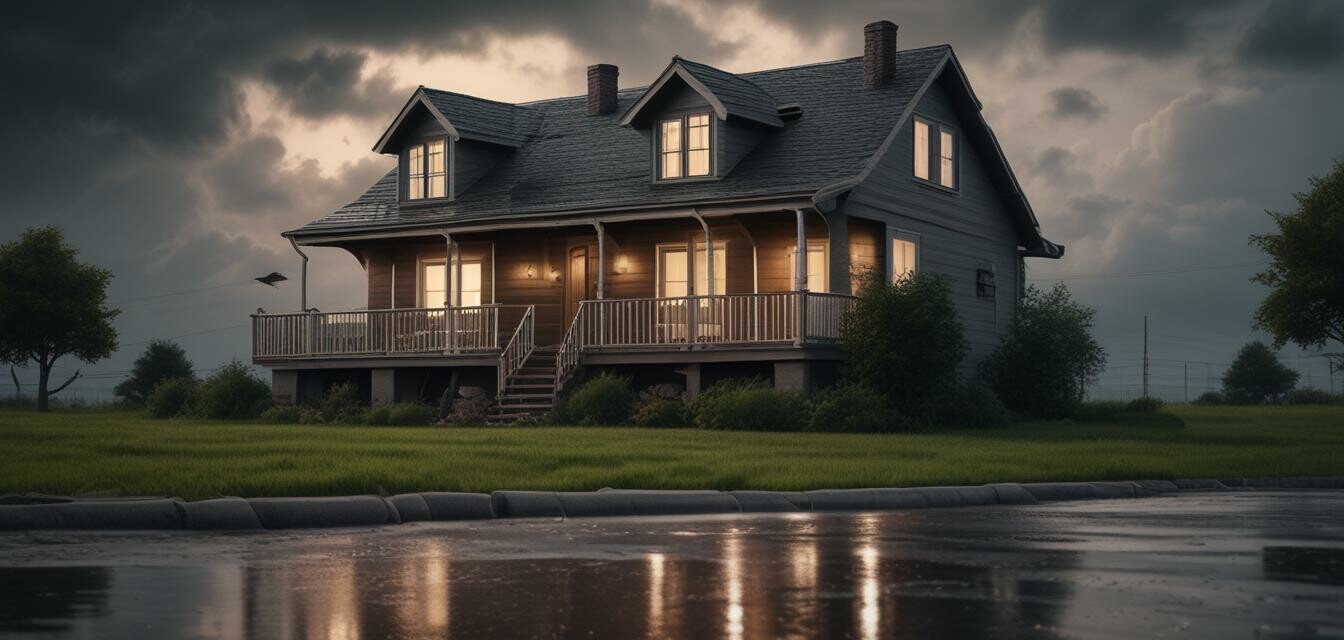
Home Security During Natural Disasters
Key Takeaways
- Invest in a robust security system that can withstand extreme weather.
- Regularly update and maintain your home safety equipment.
- Prepare an emergency kit with essential supplies.
- Stay informed about local disaster plans and alerts.
- Develop an evacuation plan and ensure all family members know it.
Home security is crucial, especially during natural disasters. Poorly secured homes are at a greater risk of damage, theft, or even personal harm during emergencies. This article offers practical tips on how to protect your home before, during, and after a natural disaster.
Understanding Your Risks
Every location has unique vulnerabilities based on geographic factors. Familiarize yourself with the types of natural disasters that could affect your area. Common threats include:
- Flooding
- Hurricanes
- Earthquakes
- Tornadoes
- Wildfires
Preparing Your Home
Preparation is key to ensuring the safety of your household. Here are steps you should take:
1. Invest in a Quality Security System
Your home's security system should include:
- CCTV or surveillance cameras that can withstand harsh weather.
- Motion sensors that alert you during an emergency.
- Flood or fire alarms that notify you of imminent dangers.
For a deeper guide on selecting the right system, check out our buying guides.
2. Secure Outdoor Areas
Outdoor areas should be fortified because they can be exposed to strong winds and flooding:
- Trim trees and shrubs to prevent branches from falling on your house.
- Secure outdoor furniture and decorations that could become projectiles.
- Install proper drainage to reduce flooding likelihood.
3. Create an Emergency Plan
Having an evacuation plan can save lives. Ensure every family member knows:
- The safest routes out of the house.
- Designated meeting points outside the home.
- How to contact one another in case of separation.
4. Prepare an Emergency Kit
Keep an emergency kit handy, stocked with:
- Non-perishable food and water (enough for at least three days).
- First-aid supplies and medications.
- A flashlight and extra batteries.
- Essential documents (IDs, insurance).
During a Natural Disaster
When a disaster strikes, follow these guidelines:
1. Stay Informed
Listen to weather updates through radios or mobile apps to get real-time updates. Subscribe to alerts in your locality to stay informed about emergencies.
2. Secure Your Home
Take the necessary precautions:
- Lock all doors and windows.
- Shut off utilities as instructed by local authorities.
- Move valuables to higher floors if flooding is imminent.
After a Natural Disaster
Once the danger has passed, you need to ensure your home is safe and secure:
1. Inspect for Damage
Look for:
- Structural damages: cracks in walls or the foundation.
- Water damage: mold, mildew, or damaged electrical systems.
- Security breaches: check for looting or forced entry.
2. Document and Report Damage
Take photos of damages for insurance claims. Make an inventory of what's lost to streamline the claims process.
3. Restore Security Measures
Reinstall or repair any damaged security systems as soon as possible. You can find recommended systems in our security alarm and sensors section.
Pros
- Enhanced protection during emergencies.
- Peace of mind knowing you are prepared.
- Potentially lower insurance premiums with improved security.
Cons
- Initial costs for setting up a security system.
- Time-consuming to plan and prepare effectively.
- Maintenance of equipment and systems is required.
Conclusion
Securing your home against natural disasters is not just about technology; it's about preparedness and common sense. By taking proactive steps, you can protect your loved ones and your property. Remember to regularly review your preparedness plans and update your security systems.
Tips for Beginners
- Start small: begin by securing windows and doors.
- Learn about the types of natural disasters in your area.
- Involve the whole family in planning and preparedness activities.
